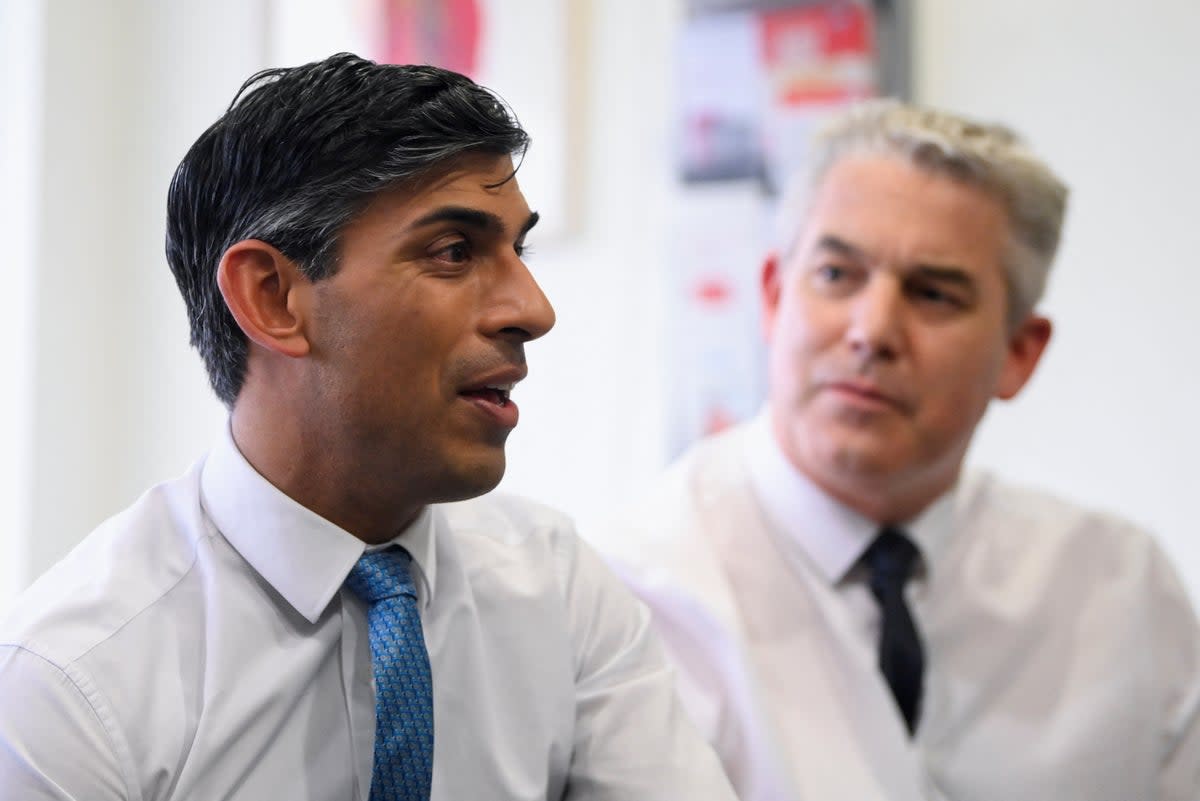Pharmacists to offer prescriptions for these seven conditions without GP sign-off
Pharmacists will soon be able to give out prescription medicines and oral contraception to patients without GPs’ sign-off in a bid to ease the pressure on surgeries.
Under a new blueprint announced by Rishi Sunak, treatments for seven common conditions – including earache, sore throat and urinary tract infections – will be available without seeing a doctor.
The prime minister hopes the measures will help end the “all-too stressful wait” for appointments by freeing up 15 million slots at doctors’ surgeries over the next two years.
Pharmacists themselves would be able to write the prescriptions under the reform that ministers hope will be introduced this winter after a consultation with the industry.
It is hoped that almost half-a-million women would no longer need to speak to a nurse or GP to get oral contraception. The other medications that pharmacies would be able to hand out would treat conditions are sinusitis, infected insect bite, impetigo and shingles.
The number of people able to access blood pressure checks in pharmacies would be more than doubled to 2.5 million a year. Self-referrals will also be increased for access to services such as physiotherapy, hearing tests and podiatry without having to see a GP first.
Mr Sunak announced the measures as he seeks to bounce back from the Tories’ poor performance in last week’s local elections, which saw the party shed 1,061 council seats.
“I know how frustrating it is to be stuck on hold to your GP practice when you or a family member desperately need an appointment for a common illness,” he said, “We will end the 8am rush and expand the services offered by pharmacies.”
But the King’s Fund health think tank warned of the potential for a postcode lottery – saying some pharmacies will not be able to offer the services because they may not have access to diagnostic tools, or sufficient staff and consultation rooms.
Senior fellow Beccy Baird said that “not all pharmacies will be able to offer these services and it will be really frustrating for patients to be bumped from pillar to post, only to end up back at the GP”.

Labour’s shadow health secretary Wes Streeting dismissed the plan as “merely tinkering at edges”, saying: “Expecting the Conservatives to fix this is like expecting an arsonist to put out the fire they started.
Mr Streeting added: “Rishi Sunak is completely out of touch with the problems facing patients and the NHS. He has no plan to address the shortage of GPs, or to reverse the cut in the number of doctors trained every year.”
Mr Sunak has said he is registered with an NHS GP after acknowledging using private healthcare in the past. His family used to run a pharmacy in Southampton.
He outlined the plans as industry groups warned more pharmacies will close unless ministers provide more funding to the “struggling” sector.
Professor Sir Stephen Powis, national medical director for NHS England, told BBC Radio 4’s Today programme the new pharmacy scheme would help “take the pressure off” GPs.
But Sir Stephen said he hoped the much-anticipated workforce plan for the NHS in England would be published before the parliamentary recess. “It is a really important plan because, of course, our workforce are key to our health system.”
The latest proposals, backed by £645m of spending over two years, come on top of measures to make it easier to get GP appointments with online booking tools.
NHS chief executive Amanda Pritchard said the “ambitious package” will help transform how care is provided within the health service. Thorrun Govind, the chairwoman of the Royal Pharmaceutical Society in England, said the plans are a “real game-changer” for patients.




